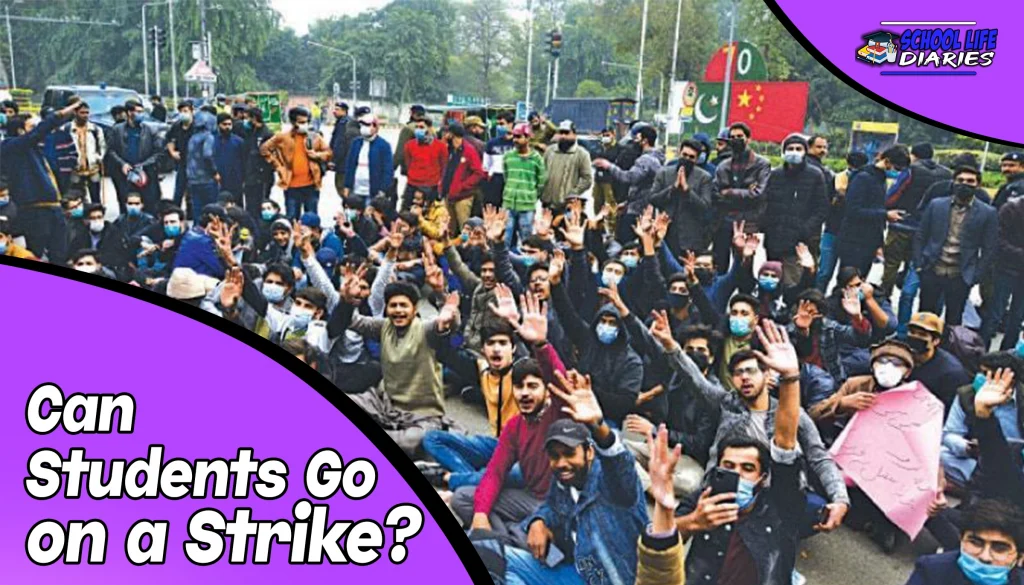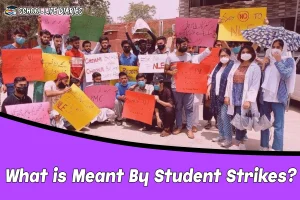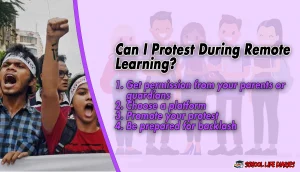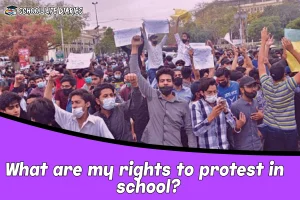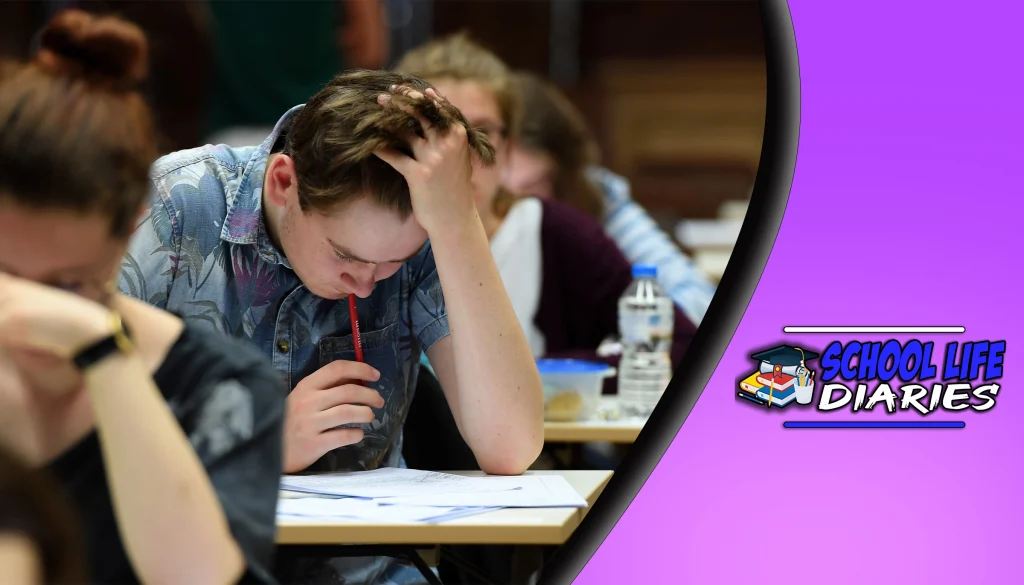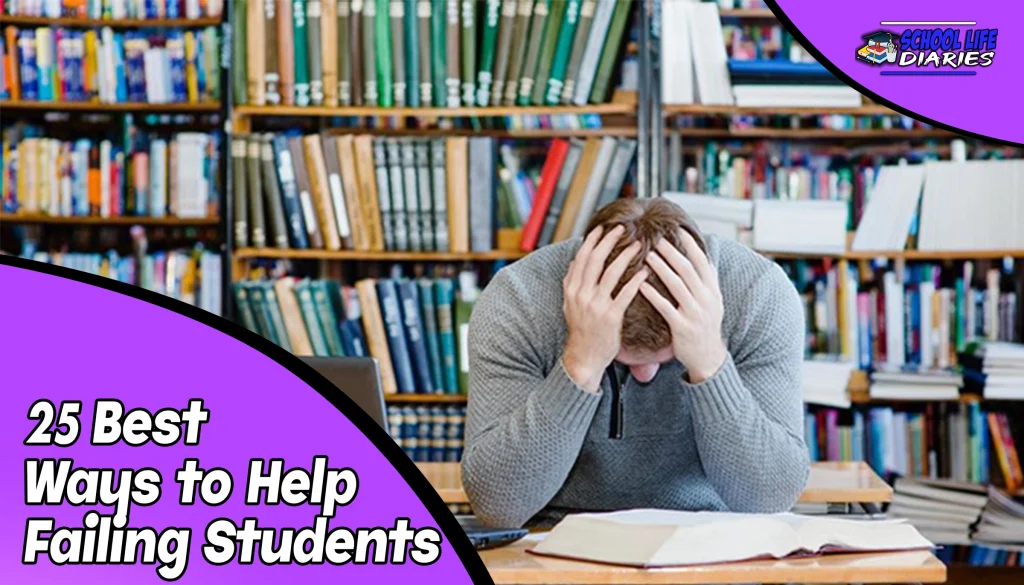Yes, Students can go on strike if they feel like they need to. It’s their right to protest. They should consult with their school administration first to make sure that their strike won’t interfere with their schooling. Depending on the school’s policies, there could be consequences for participating in a student strike.
It’s important for students to consider these potential risks before organizing a protest. Students should make sure that their strike is peaceful and lawful so as not to disrupt classroom learning or violate any laws.
Do Students Have a Right To Strike?
Yes, Students have a right to strike, and the university should respect their right to do so. The university also has a responsibility to ensure the safety of its students and staff, and it may need to take steps to ensure that protesters are not disruptive or violent.
The university should also make sure that its protesters are acting within the law. The right to protest is a fundamental part of democracy, and universities should be places where different points of view can be freely expressed.
What is Meant By Students Strike?
A student strike is a form of protest in which students walk out of their classes in order to demand change from their school or government. Student strikes can be very effective in getting attention to the issues that students are concerned about, and can often lead to changes in policy or legislation.
I Go To A Public College. Can I Strike On Campus?
Yes, you can strike on campus. Colleges and universities are typically open forums for free speech, and you are allowed to express your views publicly. You should check with the school administration to make sure that there are any specific policies or procedures in place governing protests or demonstrations on campus.
It is also important to remember to be respectful and peaceful during your protest. Your school may have rules regarding the conduct of protests on campus, so make sure you know what they are before getting involved in any kind of demonstration. It’s also vital to research your topic thoroughly beforehand so that you can back up any claims or ideas you express during the protest.
Can High School Students Strike School Decisions On Campus During School Hours?
Yes, high school students can get together to strike school decisions on campus during school hours. They need to follow their school’s rules for protests. Some schools require students to get permission from an administrator before protesting, while others forbid any type of protest on campus during school hours. If your school has rules against protesting during class time, you might be able to hold your protest after school or on weekends.
You’ll need to check your school’s policy to be sure. If you do decide to protest during school hours, be respectful of your classmates and teachers who are trying to learn. Don’t block hallways or classrooms, and be sure to clean up any messes you make. And, of course, always follow your school’s rules for protesting.
What About Protesting Away From School?
If you’re protesting away from school, your rights are a little more limited. You can still protest, but you can’t disrupt traffic or hamper business. You can’t wear masks or obscuring clothing while protesting. It is important to be aware of local laws and regulations, as they may prohibit certain behaviors or activities. If you are attending a protest away from school grounds it is always best to remain vigilant and follow the instructions given by organizers. Protesting can be a powerful way to make your voice heard, no matter where you are.
Are All Forms of Protest Protected?
Protests are generally protected under the First Amendment, but there are some exceptions. For example, if a protest is violent or disruptive, it may be unlawful. Certain types of protests, such as those involving hate speech or obscenity, may be restricted.
There are a variety of ways to protest peacefully. Many protesters choose to march or hold rallies. Others may engage in sit-ins, hunger strikes, or other forms of civil disobedience. When protesting, it is important to be aware of your rights and obey all laws.
If you are planning on protesting, there are a few steps you can take to prepare. First, research the issue you are protesting. This will help you make your case more effective. It is a good idea to develop a plan for how you will protest peacefully and safely.
Can I Protest During Remote Learning?
Yes, you can protest during remote learning.
Here are a few things to keep in mind if you’re planning a remote school protest.
1. Get permission from your parents or guardians for students strike:
This is probably the most important step in planning any kind of protest, whether it’s in person or online. Unless you have your parents’ or guardians’ permission, you could get into trouble with your school or even the law.
2. Choose a platform:
There are a few different ways to protest online. You could organize a virtual walkout using an app like Google Classroom or Zoom. Or you could start a petition on a website like Change.org.
3. Promote your protest:
Once you’ve chosen a platform, it’s time to start promoting your protest. This is especially important for online protests, which can be easy to miss if people don’t know they’re happening.
4. Be prepared for backlash:
Not everyone will agree with your protest, and you might face some backlash online. Be prepared for negative comments and even personal attacks.
Can My School Shut Down Our Protest Because They Don’t Like What We’re Saying?
Yes, if the school feels that the protest is disrupting the learning process or creating a hostile environment for other students, they can shut it down. Schools are generally reluctant to do this, as it can lead to more conflict.
If the school does shut down a protest, students have a few options. They can try to negotiate with the administration, staging a sit-in or another form of peaceful demonstration. If all else fails, they can transfer to another school.
Can My School Discipline Me For Participating In a Walkout?
Yes, the school can discipline you for participating in a walkout, but it is important to know your rights. If the school tries to punish you, you can contact the ACLU for help. The ACLU is a nonprofit organization that defends people’s rights.
The First Amendment of the Constitution protects your right to free speech, and that includes protesting. Schools are allowed to set rules about when and where students can protest. For example, a school could say that students are not allowed to leave class to participate in a walkout.
Can I Get In Trouble For Other Things While I’m Protesting?
Yes, you can get in trouble for other things while you’re protesting. For example, you could get in trouble for trespassing on private property or for inciting a riot. If you’re arrested for protesting peacefully, you should be released without being charged with a crime.
It’s important to note that different cities and states have their own laws regarding the protest, so it’s best to research the laws in your area before engaging in any type of demonstration. Each city or state may also have its own rules about the size and type of protests allowed. Be sure to familiarize yourself with those regulations before taking part in any demonstration.
Related Article: 25 WAYS TO HELP STUDENTS WHO ARE IN DANGER Of ACADEMIC FAILURE
How Can students Stike?
1. Students can protest by organizing rallies or walkouts.
2. Students can protest by writing letters or petitions to their legislators.
3. Students can protest by wearing symbolic clothing or accessories.
4. Students can protest by using social media to share their opinions.
5. Students can protest by speaking out at school board meetings.
6. Students can protest by starting or joining activist groups.
7. Students can protest by boycotting schools or certain products/services.
8. Students can protest by creating art or music about their beliefs.
9. Students can protest by participating in peaceful protests or sit-ins.
10. Students can protest by raising awareness about social issues among their friends and family members.
What Are My Rights to Protest In School?
1. The right to free speech.
2. The right to freedom of assembly.
3. The right to petition the government.
4. The right to due process.
5. The right to be free from unreasonable searches and seizures.
6. The right to legal counsel.
7. The right to a fair trial.
8. The right to confront witnesses against you.
9. The right against self-incrimination.
10. The right to appeal decisions made in your case.
Is My Right to Protest the Same Indoors as Outdoors?
When protesting, the First Amendment of the U.S. Constitution guarantees your right to free speech is the same indoors or outdoors. But there are a couple of caveats.
You can’t use profanity indoors in most public places. That’s because the Supreme Court has ruled that “fighting words” those that by their very utterance inflict injury or tend to incite an immediate breach of the peace are not protected speech.
You can’t shout “Fire!” in a crowded theater when there is no fire. That’s because it would cause a panicked stampede that could injure people.
Should I Insist on My Rights While I’m Protesting? Even If I’m Told to Leave?
Yes, you should always insist on your rights while protesting, even if you are told to leave. This is your right as a citizen, and it is important that you stand up for your rights. If you are asked to leave, you can calmly explain why you are there and what your rights are. When the police insist that you leave, you can ask to speak to a supervisor. If you are still asked to leave, you should do so peacefully.
What Are the Rights of Students to Strike as Undocumented At In-School and Outside Demonstrations?
As an undocumented student, you have the right to peacefully assemble and protest at in-school and outside demonstrations. You also have the right to express your views on issues that are important to you.
You should be aware that schools and law enforcement may take action against you if they believe your actions are disruptive or unlawful. If you are arrested or detained for participating in a protest, it is important to seek legal assistance immediately.
Final Verdict: Students Strike
Many students feel that they are not being heard by their school administrations. They see a strike as a way to get administrators to pay attention to them and address their concerns. Student striking is disruptive and usually does not lead to the desired changes.
A better solution would be for students to work with their administration to come up with a plan that meets the needs of both parties. If you’re a student who is considering going on strike, we encourage you to do your research and make sure you have all the facts before making a decision.

